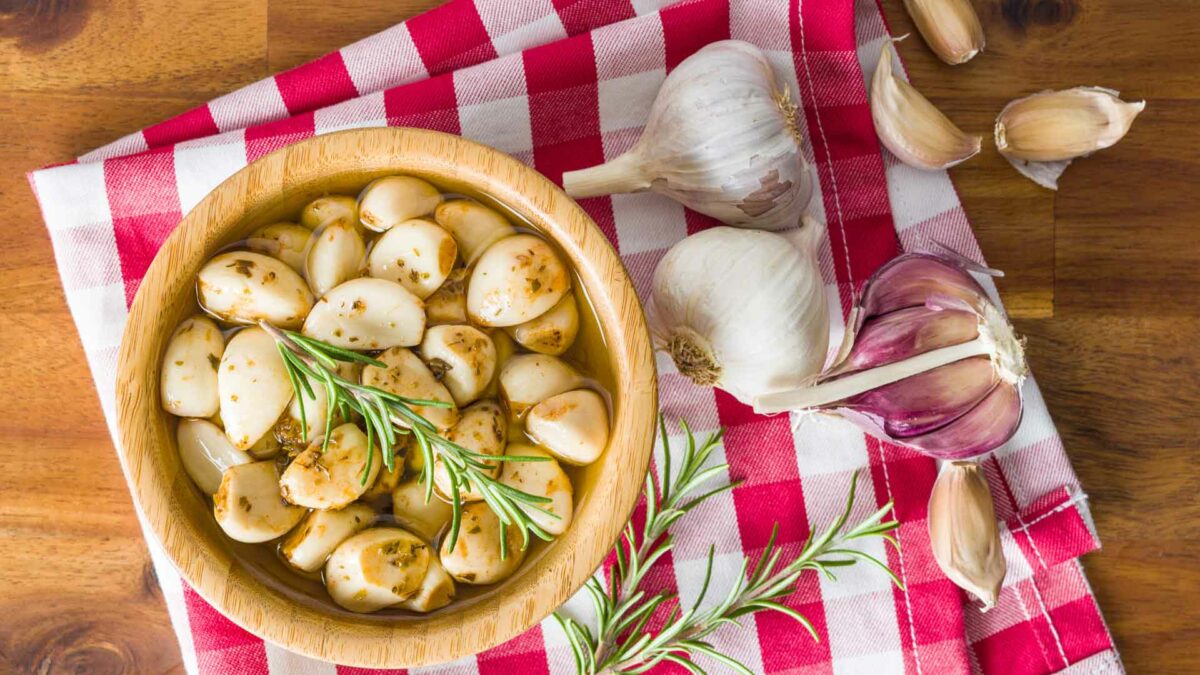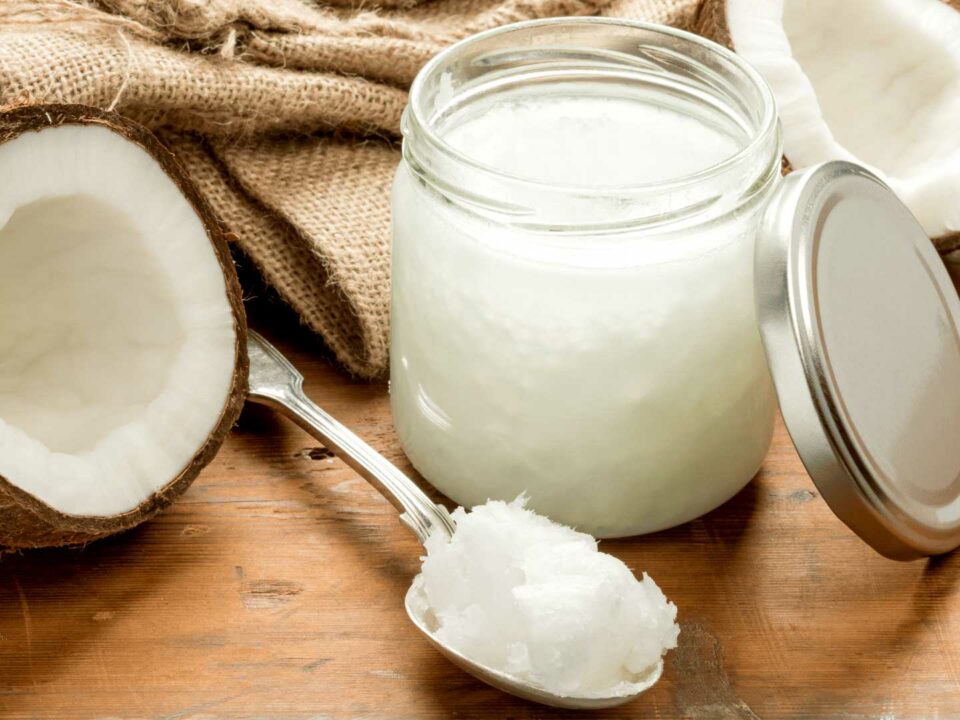In Egypt, garlic was consumed for medicinal purposes as far back as five thousand years ago. Galeno, a famous doctor in the Roman Empire, called garlic the “cure-all” and told soldiers in battle to take it every day because it had so many health benefits.
Garlic is a species with curative, antibacterial, antiviral, antifungal, anti-inflammatory, and anticoagulant properties. So, it helps treat diseases like those caused by bacteria, viruses, arthritis, cancer, heart disease, the immune system, and digestion.
It is from the same family as onions, chives, and leeks. It contains many substances with healing properties. To make the most of them, it is best to crush the garlic cloves and let them rest for ten minutes before cooking.
To counteract its characteristic smell, we can mix it with celery and parsley. In this way, we will soften its smell and increase its properties.
Garlic is easier to digest when it is cooked. A simple way to include it in our meals without losing its health properties is to add it to our vegetable soups. It is also more digestible if we extract the germ (the stem or sprout inside of each garlic clove).
How Garlic Can Help Improve Health

There are all sorts of fascinating phytonutrients (plant nutrients) in garlic. Let’s take a look at the benefits of garlic consumption and why it should be part of our daily diet.
1. Antimicrobial (viruses, bacterial, fungal, parasites)
Garlic has antimicrobial properties (it is good at killing germs). It can be used to fight viruses or bacteria. People compare it to an antibiotic, but without the side effects. It’s also antifungal, and it’s very good at killing parasites, so it will keep harmful pathogens from taking over our bodies.
2. Respiratory Health (cough, breathing)
Garlic is good for our respiratory system in many ways. It can stop a cough and make it easier to breathe. If a person has a lung infection, it can make it go away faster.
3. Arthritis (osteo and rheumatoid)
Garlic is great for reducing inflammation, especially in people with rheumatoid arthritis or osteoarthritis.
4. Cancer (all types)
Allicin, a compound found in garlic, fights cancer very well. It has a significant impact on preventing cancer, and if someone already has it, it helps them get rid of it. The consumption of 10 grams of garlic per day, that is, about two to four cloves of garlic, is associated with a decreased risk of cancer of any type, says Dr. Odile Fernández in her book “My Anticancer Recipes.”
5. Cardiovascular Health (stroke, blood pressure, cholesterol)
Garlic makes us less likely to have a stroke because it thins our blood naturally. It helps lower blood pressure. Many studies have shown that it can help lower cholesterol.
6. Immune System Health (infection, microbes)
Garlic is very good for the immune system. It makes infections go away faster and kills pathogens directly.
7. Digestion (bile for food transit, bloating, gas)
Garlic helps move bile, which helps food move through the digestive system. It also helps with bloating and gas.
8. Endurance
If you’re an athlete and you want to go longer, garlic can help you do that.
9. Detoxification
Garlic helps turn on the phase one and phase two detoxification systems in our liver. These systems break down fat-soluble poisons into harmless, water-soluble particles.
10. Bones
Garlic can actually strengthen bone density.
11. Other benefits
It’s important to point out that garlic contains iron, selenium, zinc, magnesium, sulfur and calcium. There are also a lot of fructosans, which are sugar molecules that help prevent some diseases, and arginine, which is an amino acid that is needed to make proteins and is often used for circulation.
What Is Black Garlic?

Black garlic is basically a slightly heated and aged garlic. It’s fermented by heating it to 170 degrees Fahrenheit (77 degrees Celsius) for 30 days. There several reasons for doing this: It takes the intensity out of that strong, pungent sulfur smell, as well as the taste. It’s kind of hard to consume raw garlic, so when we ferment it, we increase the bioavailability of nutrients (the body’s ability to absorb and use nutrients), but it also decreases the intensity of certain factors, making it easier to consume. The texture and taste are completely different.
It was first used as an ingredient in Asian cuisine, but it has become more popular around the world thanks to its multiple benefits. That is why we must learn to make black garlic at home and understand why it can help us gain wellness:
- Pathogens such as viruses, bacteria, and fungi are reduced in the body.
- Decreases inflammatory conditions. If someone has arthritis or inflammation in the colon, it’s really good for a leaky gut.
- Decreases insulin resistance, so it’s great for diabetics.
- Improves our immune system’s ability to fight off infection.
- Contains phytonutrients, which are natural chemicals that are found in plants. They are not essential (at least in the short term), but they do have positive effects on health.
- Nutrient-rich (vitamins and minerals). Vitamins are essential nutrients that our body needs for its primary functions. Because our bodies cannot synthesize them, we need to ingest them with food. Minerals are also needed in small amounts for body functions.
- Significantly decreases the risk of all types of cancer. Eating two to four garlic cloves per day has a significant impact.
- Decreases risk of cardiovascular problems like heart problems (plaquing, clotting, stroke, and high blood pressure).
- This is a key point: black garlic increases the bioavailability of nutrients, thereby increasing the absorption of nutrients. We will consume more nutrients when it’s fermented compared to it being raw because there are certain things in raw garlic that prevent the full absorption of these nutrients.
Go ahead and eat garlic every day and let me know how you’re doing!
References
Fernández, Odile. Mis Recetas Anticáncer. Barcelona, España, Urano, 2013.
DISCLAIMER
This information is not presented by a medical practitioner and is for educational and informational purposes only. The content is not intended to be a substitute for professional medical advice, diagnosis, or treatment. Always seek the advice of your physician or other qualified healthcare provider with any questions you may have regarding a medical condition. Never disregard professional medical advice or delay seeking it because of something you have read.



